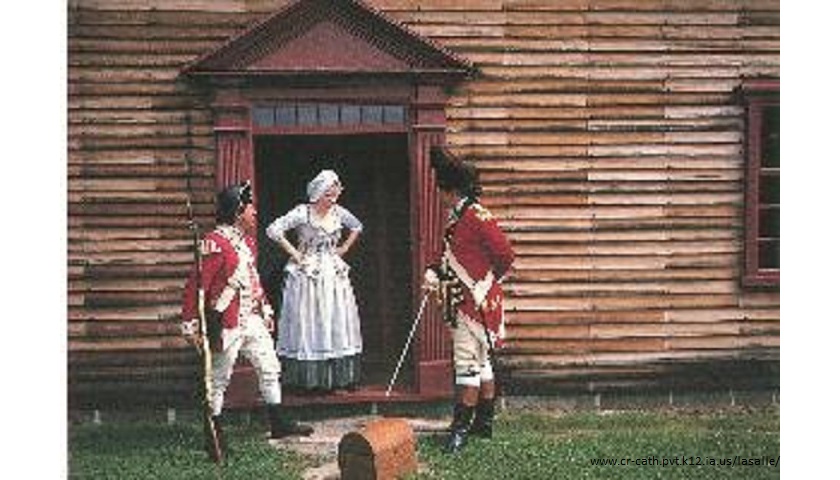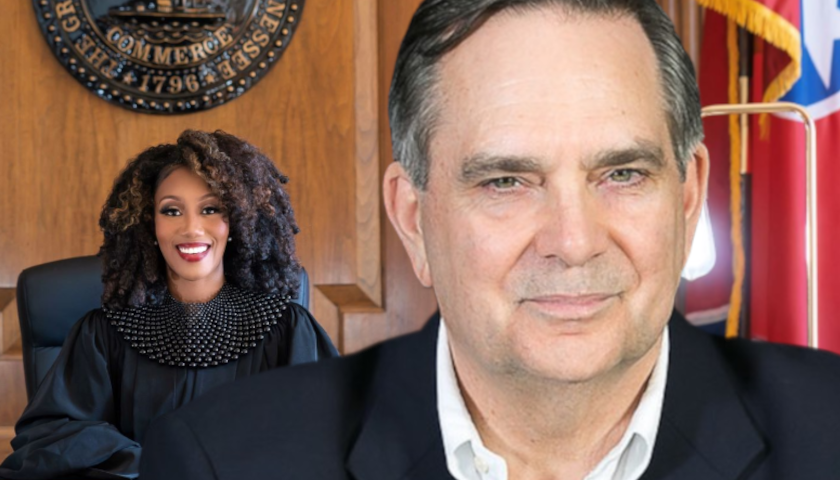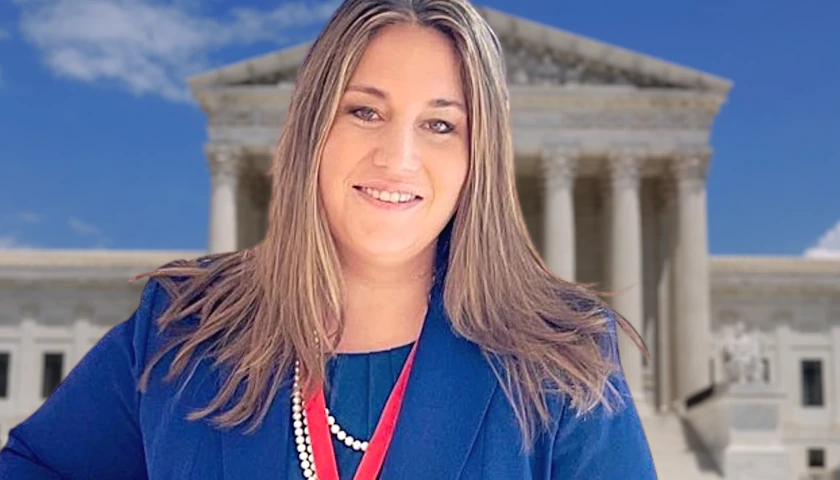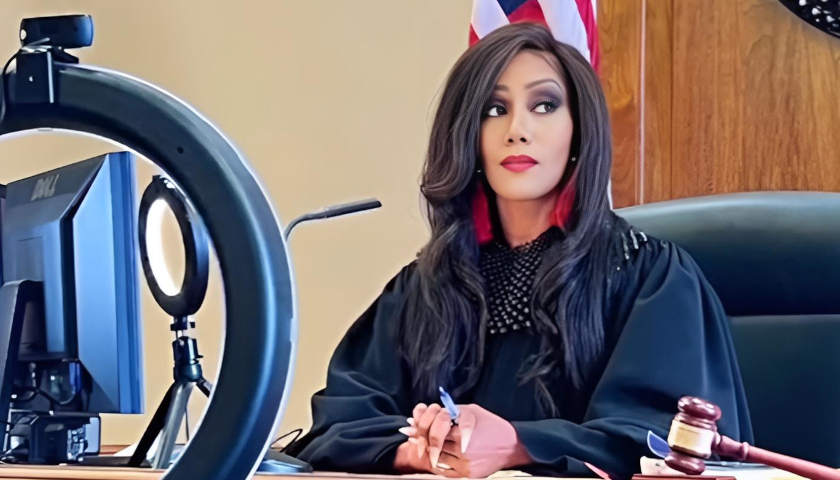This is the twelfth of twenty-five weekly articles in The Tennessee Star’s Constitution Series. Students in grades 8 through 12 can sign up here to participate in The Tennessee Star’s Constitution Bee, which will be held on September 23.
To modern eyes, the Third Amendment seems anachronistic. To the Founders, however, it was a critical protection of individual liberty:
No Soldier shall, in time of peace be quartered in any house, without the consent of the Owner, nor in time of war, but in a manner to be prescribed by law.
The unwelcome quartering of troops was fresh in the minds of newly independent Americans, who rankled at the memory of their homes being taken over by British troops, almost always against the wishes of the owners, during the American Revolution.
“The Third Amendment seems to have no direct constitutional relevance at present; indeed, not only is it the least litigated amendment in the Bill of Rights, but the Supreme Court has never decided a case on the basis of it,” Professor Gordon Wood of Brown University, a leading expert on the Federal Era of the new American Republic, wrote:
The federal government today is not likely to ask people to house soldiers in their homes, even in time of war. Nevertheless, the amendment has some modern implications. It suggests the individual’s right of domestic privacy—that people are protected from governmental intrusion into their homes; and it is the only part of the Constitution that deals directly with the relationship between the rights of individuals and the military in both peace and war—rights that emphasize the importance of civilian control over the armed forces. Some legal scholars have even begun to argue that the amendment might be applied to the government’s response to terror attacks and natural disasters, and to issues involving eminent domain and the militarization of the police.
When the amendment was written in the eighteenth century, Americans and Englishmen in general believed that the issue of quartering troops in private homes was of great and palpable significance. During the course of their history the English had developed a deep dislike of standing armies; they especially objected to the government’s compelling them to quarter soldiers in their homes.
Yet the English attitude was contradictory. At the same time as the English protested the quartering of troops in private homes, they were reluctant to house the soldiers in barracks separated from the civilian population. The English remained so suspicious of standing armies that they feared that concentrations of soldiers in barracks might pose military threats to the people’s liberties. Thus, the English concluded that if they had to have an army, it must be scattered among the populace and housed preferably in inns, alehouses, stables, and private homes. But as Parliament made clear in the Glorious Revolution of 1688-89, the government could not billet troops in private homes without the consent of the owners. So the English fear of standing armies was inextricably connected to their fear of having soldiers quartered in their homes without their consent.
“The idea of quartering soldiers in private homes without the owners’ consent, even in wartime, had been illegal in England for many years before the American Revolution. The English Bill of Rights of 1689 listed the right of the king’s subjects ‘not to be burdened with the sojourning of soldiers against their will.’ ” the Constitutional Rights Foundation wrote:
In America during 1754, the question of quartering troops first arose, when British soldiers began arriving to fight in the French and Indian War. Lord Loudoun, the commander-in-chief of the British army in North America, realized that the quartering provisions of the Mutiny Act applied only to England and not to its colonies. Using his military authority, Lord Loudoun decreed that if barracks were not available, then the owners of both public and private houses would have to provide accommodations for his men. Loudoun left it up to local civilian officials to make the necessary arrangements and to secure reimbursement from their colonial legislatures. . .
In 1763, when the French and Indian War ended, the British government decided to keep a standing (permanent) army in North America. Although the mission of the peacetime army was not clearly defined, it seemed to be a combination of defending newly acquired Canada and Florida and managing Indian affairs. Some colonists welcomed British military assistance in protecting them from hostile Indian attacks. The British government, however, never stated the most important purpose. The army was to act as a police force to keep the king’s subjects in line. . .
On October 26,1768, the Massachusetts Council announced its “definitive refusal” to provide and pay for the quartering of British soldiers inside the town of Boston. The following day, soldiers moved into stores, warehouses, and other commercial buildings that had been rented by Lt. Col. Dalrymple at the Crown’s expense. Eventually, as local toughs and soldiers repeatedly clashed, virtual warfare raged on the streets of Boston. On March 5,1770, a crowd gathered before the Customs House, taunted the sentry and began throwing stones and snowballs. The crowd became increasingly aggressive, eventually goading British soldiers into firing their muskets into the crowd, killing five people.
Anger over the Boston Massacre led to the Boston Tea Party of 1773, which in turn fueled opposition to British rule and, ultimately, the Declaration of Independence and the American Revolution.
The treaty ending that war and formalizing American independence was signed in 1783. Four years later, the Constitutional Convention met in Philadelphia.
“[W]hen the new federal Congress came to write the Third Amendment to the Constitution in 1789, it had considerable experience and precedent to rely on. There was nothing new about the Third Amendment; it simply declared what had become conventional American wisdom,” Wood concluded.
That lack of controversy about the Third Amendment at the time of its introduction and ratification is universally acknowledged.
“The brief congressional debates on the text [in 1789] make clear that the amendment reflects an effort to balance private property rights and the potential wartime need for military quarters,” Professor Andrew P. Morriss of the University of Alabama School of Law wrote:
The Anti-Federalists used the absence of a ban on quartering as an argument against ratification. Once the concept of a Bill of Rights was agreed upon, however, there was little controversy over the inclusion of a ban on quartering. Six of the original thirteen states also adopted constitutional provisions banning the quartering of soldiers.
The British practice of quartering soldiers in America grew out of the lack of regular army bases, unclear legislative authority for British army quartering in America, and the need to move large bodies of troops about the country during conflicts with the French and Indians. Although there were numerous conflicts over quartering in both Britain and America before the 1770s, the most significant episodes concerned the British quartering of soldiers in private homes to punish the people of Boston under the Intolerable Acts of 1774.
Because of its clear text, there have been few court opinions discussing the Third Amendment. The quartering problem has largely been solved today by paying communities to host military bases.
“When the Supreme Court has cited the Third Amendment, it has been as part of nonoriginalist interpretations that list it as one of the sources of ‘penumbras, formed by emanations’ that create a zone of privacy in no specific clause of the Constitution. For example, the Court cited it in the name of marital privacy as support for constitutional restrictions on state governments’ abilities to regulate the sale of contraceptives in Griswold v. Connecticut (1965),” Morriss concluded.
If the Third Amendment is ever seen again at the Supreme Court, it will almost certainly come in connection to a nonoriginalist interpretation surrounding “zone of privacy” rather than the clear quartering of troops issue addressed by the actual text of the amendment.







The First, Third, Fourth, Fifth and Ninth Amendments have been cited as protecting our right to privacy in subsequent Supreme Court cases. The Court should have struck down the ACA using these amendments, including the tenth amendment. There have been so many over-reaches perpetrated on the American people (the EPA comes to mind) that these amendments should have saved us from, but all three branches of government have proven that they no longer even consider the Constitution. Yes, the founders warned us that when the electorate become less virtuous and less educated, that they will elect to office the worst among. We can only hope and pray that future generations rediscover our founding documents and save this nation.